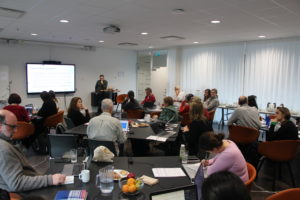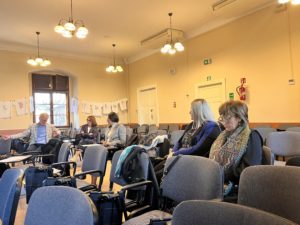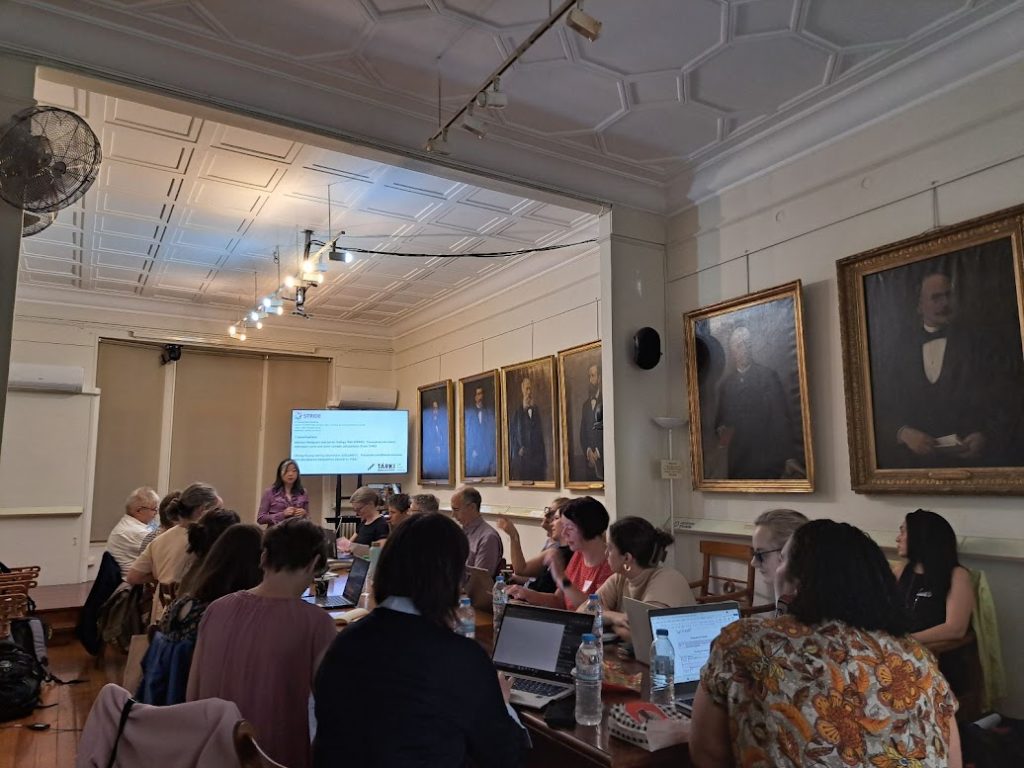One of the STRIDE consortium partners, the Lifelong Learning Platform (LLLP), has long advocated for increased policy coherence across education and training initiatives, and the recently launched Union of Skills (UoS) can represent an important step towards achieving this goal. In their statement ahead of the launch, LLLP underlined the importance for the UoS to address equity and inclusion gaps and called for stronger support to all learners and educators as a pre-requisite to achieving EU’s long term goals.
What is the Union of Skills?
The UoS is an initiative announced by the President of the European Commission in the summer of 2024 in her Political Guidelines. This ambitious strategy aims on one side to bring together existing education and training initiatives at the EU level, in an attempt to ensure policy coherence; and on the other hand, to launch new actions to address the current challenges in education and training with a more competitive and inclusive EU in mind. By addressing gaps in learning, the EU also aims to empower people with the skills they need to succeed in their educational and professional lives, while also making it easier to use these skills in different EU countries.
One of the key strands of the strategy include building skills for quality jobs and lives through a strong educational foundation, with an inclusive lifelong learning approach. The inclusion aspect is crucial as more than a fifth of EU citizens find themselves at risk of poverty or social exclusion. Other key strands include upskilling and reskilling an agile workforce mastering the digital and clean transition, notably those with lower and middle skills; circulating skills with the free movement of people across the EU, unlocking the single market’s full potential; and finally to attract, develop and retain talent.
Influence on Education Policy at the EU Level
The UoS can have a profound impact on education policy at the EU level. However, as highlighted in LLLP’s statement, this initiative will need to establish a robust structure and governance framework that requires anticipation, coordinated direction, investment, and the implementation of effective reforms across multiple levels. Only through this approach will Member States be able to swiftly and effectively address skill-related issues, particularly in sectors critical to European competitiveness.
The governance of the Union of Skills will be underpinned by the European Skills Intelligence Observatory, which will support the policy-making process by streamlining and consolidating intelligence of skills, making policy development more informed and agile. Achieving this will require leveraging existing structures while trying to simplify processes, all in collaboration with the European Skills High-Level Board, which will bring together stakeholders, including social partners, the private sector, and education and training institutions. Based on the input from both the Observatory and the Board, the Commission wants to produce a EU-27 Recommendation on education and skills in the European Semester cycle, with the intent to guide Member States and make sure reforms are strategically built to respond to demanding needs.
Equity and Inclusion
STRIDE’s mission is to promote equity and inclusion in education and training and to support policymakers in creating an inclusive and equitable education system. The Union of Skills aligns with this focus by addressing the equity and inclusion gap which is crucial for social cohesion, lifelong learning, and prosperity. Furthermore, the work on STRIDE and similar projects can benefit from the UoS’s attempt to provide a robust governance structure, better monitoring mechanisms, and data collection to ensure that education and training policies are effective and inclusive.
However, there is still a significant group of disadvantaged learners that keep falling further behind in terms of lifelong learning. With more than 20% of the EU population at risk of poverty or social exclusion, LLLP demands that the UoS ensures that disadvantaged learner groups are not left behind. For LLLP, a European Union of Skills is one that understands that there is not an universal learning approach for all and supports European education and training systems to provide equal opportunities for everyone, regardless of their background and place of residence, to have access to education, lifelong learning, quality jobs and navigate transitions and crises.
As shown by OECD and Cedefop studies, disadvantaged learners tend to be more at risk of joining or following extreme movements and have less access to knowledge processes on changes in society and labour markets. LLLP in their statement demands from the EU institutions a Union of Skills that takes more meaningful action in increasing the participation in learning of those not regularly engaged and in ensuring that each learner can develop their key competences. As LLLP states: “Equity and inclusion are crucial to social cohesion, lifelong learning and prosperity. A competitive Europe is a Europe where everyone contributes to social and economic prosperity in their own capacity.”
Making the Union of Skills a reality through stakeholder cooperation
The UoS represents a new era for education and training policy in the EU. It aims to address current challenges in education and training, promotes equity and inclusion, and aims to ensure education and learning offers are meaningful to people’s careers. STRIDE’s focus on equity and inclusion is well aligned with these aims and the partnership is well placed to provide key data and analysis in order to overcome common challenges around equity and inclusion; and achieve the UoS’s goals. However, as underlined by STRIDE partner LLLP, it will be fundamental to better integrate marginalised learning groups and to ensure that everyone can get their chance at developing their desired skills. A better integration can only be achieved by fostering close cooperation between policy makers, academia, civil society and social partners. This is an aspect which STRIDE pays close attention to and will address through close dialogue with EU and national stakeholder groups to ensure the project delivers relevant results for the betterment of our education and training systems.
Find out more about LLLP’s statement on their website: https://www.lllplatform.eu/post/new-statement-the-union-of-skills-are-we-honouring-jacques-delors-vision-on-lifelong-learning
Find out more about the Union of Skills on the following link: https://commission.europa.eu/topics/eu-competitiveness/union-skills_en












